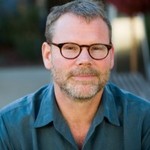Agriculture in the Anthropocene: Growing a Sustainable Human Ecology
Erle Ellis
Monday, 29 Oct 2012 at 8:00 pm – Great Hall, Memorial Union
There is growing scientific consensus that humans have now forced the planet into a new geological epoch: The Anthropocene. Ecologist Erle Ellis agrees and studies how our use and transformation of the earth, including agriculture, is a primary driver of global changes in climate, biodiversity and biogeochemistry. Ellis has developed a scientific approach to mapping the human footprint, including tools that link human and ecological change processes on a small scale with their global causes and consequences. He is an associate professor in the Department of Geography and Environmental Systems at the University of Maryland, Baltimore County. 2012 Pesek Colloquium on Sustainable Agriculture.This presentation will characterize the emergence and history of agriculture as a global force transforming the Earth system, while demonstrating the vast potential for agricultural systems to continue evolving ever greater benefits for both humanity and our planet’s ecological heritage.
Cosponsored By:
- Agronomy
- Bioeconomy Institute
- College of Agriculture & Life Sciences
- College of Liberal Arts & Sciences
- Ecology, Evolution & Organismal Biology
- Graduate Program in Sustainable Agriculture
- Leopold Center for Sustainable Agriculture
- Plant Sciences Institute
- Practical Farmers of Iowa
- Wallace Chair for Sustainable Agriculture
- Committee on Lectures (funded by Student Government)
Stay for the entire event, including the brief question-and-answer session that follows the formal presentation. Most events run 75 minutes.
Sign-ins are after the event concludes. For lectures in the Memorial Union, go to the information desk in the Main Lounge. In other academic buildings, look for signage outside the auditorium.
Lecture Etiquette
- Stay for the entire lecture and the brief audience Q&A. If a student needs to leave early, he or she should sit near the back and exit discreetly.
- Do not bring food or uncovered drinks into the lecture.
- Check with Lectures staff before taking photographs or recording any portion of the event. There are often restrictions. Cell phones, tablets and laptops may be used to take notes or for class assignments.
- Keep questions or comments brief and concise to allow as many as possible.




